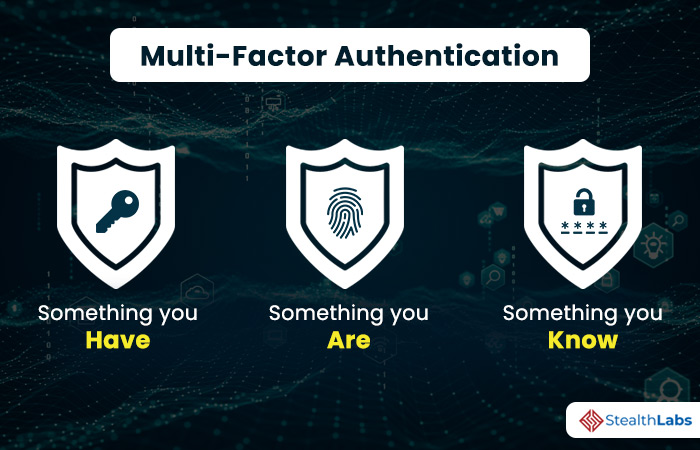Effective Directives For Faster Crime Control: Implementation And Best Practices

Table of Contents
Proactive Policing Strategies for Faster Response Times
Proactive policing is crucial for effective crime control. It shifts the focus from simply reacting to crimes to preventing them before they occur. This involves several key strategies:
Community Policing and Engagement
Building strong relationships between law enforcement and the community is fundamental for preventing crime and fostering trust. This collaborative approach leads to increased information sharing and enhanced crime prevention.
- Neighborhood Watch Programs: Empowering residents to actively participate in protecting their neighborhoods through observation and reporting suspicious activities.
- Community Forums and Town Halls: Creating open dialogues between law enforcement and the community to address concerns, build trust, and foster collaboration.
- Increased Police Visibility: Regular patrols, community events, and visible police presence serve as a deterrent and build community trust.
- Community Policing Apps: Utilizing technology to facilitate communication, allowing citizens to report crimes, provide tips, and receive crime alerts directly.
- Addressing Root Causes: Working with social services and community organizations to tackle underlying issues like poverty, unemployment, and lack of educational opportunities that contribute to crime.
Data-Driven Crime Analysis and Predictive Policing
Leveraging data analytics and predictive policing significantly enhances crime prevention efforts. By analyzing crime trends and patterns, resources can be deployed more effectively.
- Crime Hotspot Identification: Pinpointing high-crime areas allows for targeted patrols and resource allocation.
- Predictive Policing Software: Utilizing algorithms to forecast future crime patterns, enabling proactive deployment of officers and resources.
- Resource Optimization: Deploying officers and resources strategically based on data-driven insights rather than relying on historical patterns.
- Continuous Evaluation: Regularly assessing the effectiveness of predictive policing strategies to ensure their accuracy and efficacy.
Improved Training and Resource Allocation
Investing in comprehensive training and adequate resources is vital for effective proactive policing. This ensures officers are equipped to handle various situations effectively and build stronger community relationships.
- De-escalation Techniques: Training officers in effective communication and de-escalation strategies to minimize conflict and promote peaceful resolutions.
- Community Engagement Training: Equipping officers with the skills to engage with the community effectively, build trust, and foster positive relationships.
- Cultural Sensitivity Training: Providing training that enhances understanding of diverse cultural backgrounds and promotes respectful interactions.
- Adequate Staffing and Resources: Ensuring sufficient personnel and resources are available to support proactive policing initiatives effectively.
- Technological Upgrades: Providing officers with the latest technology and equipment, such as body-worn cameras and advanced communication systems.
Technological Advancements for Enhanced Crime Control
Technology plays a crucial role in modern crime control, offering tools for prevention, detection, and investigation.
CCTV Surveillance and Facial Recognition Technology
Strategic placement of CCTV cameras and the responsible use of facial recognition technology can significantly enhance crime prevention and investigation.
- Deterrent Effect: Visible cameras deter potential criminals and provide a record of events.
- Evidence Gathering: Cameras provide crucial evidence for investigations, helping to identify suspects and solve crimes.
- Facial Recognition (Ethical Considerations): Using this technology responsibly, respecting privacy rights and adhering to ethical guidelines.
- Advanced Analytics: Utilizing AI-powered analytics to identify patterns and trends in surveillance footage.
Body-Worn Cameras and Evidence Management
Body-worn cameras (BWCs) improve transparency, accountability, and evidence gathering. Effective evidence management systems are crucial for successful prosecutions.
- Increased Transparency and Accountability: BWC footage provides an objective record of police interactions, improving transparency and accountability.
- Enhanced Evidence Collection: BWCs capture crucial evidence that may otherwise be missed.
- Secure Evidence Storage: Implementing robust systems to store and manage digital evidence securely and efficiently.
- Digital Evidence Management Systems: Utilizing digital systems to streamline the evidence management process.
Crime Reporting and Communication Apps
User-friendly mobile apps empower citizens to actively participate in crime prevention and reporting.
- Simplified Crime Reporting: Making it easy for citizens to report crimes and provide information to law enforcement.
- Real-time Crime Alerts: Providing timely alerts to warn citizens of potential threats and dangers in their area.
- Anonymous Tip Reporting: Allowing citizens to submit anonymous tips without fear of reprisal.
- Two-way Communication: Enabling citizens to communicate directly with law enforcement.
Effective Crime Prevention Programs and Initiatives
Proactive crime prevention programs are crucial for addressing the root causes of crime and fostering safer communities.
Youth Crime Prevention Programs
Investing in youth is crucial for long-term crime reduction. Early intervention programs prevent youth from engaging in criminal activity.
- Early Intervention Programs: Identifying at-risk youth and providing them with support and resources to prevent them from entering the criminal justice system.
- After-School Programs: Providing positive activities and mentorship to keep youth engaged and away from negative influences.
- Educational Programs: Providing educational opportunities and skills training to improve the life chances of young people.
- Mentorship Programs: Pairing youth with positive role models who can provide guidance and support.
Gang Prevention and Intervention Strategies
Comprehensive strategies are needed to disrupt gang activity and provide alternative pathways for at-risk youth.
- Gang Intervention Programs: Working with gang members to help them leave the gang and lead productive lives.
- Community Outreach Programs: Building relationships with community members to identify and address the factors that contribute to gang involvement.
- Suppression Strategies: Using law enforcement to disrupt gang activity and bring gang members to justice.
Public Awareness Campaigns
Educating the community on crime prevention strategies empowers citizens to take an active role in enhancing their safety.
- Crime Prevention Tips: Providing practical advice on how to protect themselves and their property.
- Neighborhood Watch Programs: Promoting the benefits of neighborhood watch programs and encouraging participation.
- Community Safety Events: Organizing events to raise awareness of crime prevention issues and connect with community members.
Conclusion
Implementing effective crime control strategies requires a holistic approach combining proactive policing, technological advancements, and robust community engagement. By investing in these key areas, communities can create safer environments and improve the overall well-being of their citizens. The effective implementation of these directives leads to significantly faster crime control and improved public safety. Don't wait for crime to impact your community – start implementing these effective crime control measures today!

Featured Posts
-
 Nba Basketball Thunder Vs Trail Blazers Game Details For March 7th
May 08, 2025
Nba Basketball Thunder Vs Trail Blazers Game Details For March 7th
May 08, 2025 -
 Seged Go Shokira Pariz Chetvrtfinale Vo Ligata Na Shampionite
May 08, 2025
Seged Go Shokira Pariz Chetvrtfinale Vo Ligata Na Shampionite
May 08, 2025 -
 Analyzing The Challenges Why Xrp Etfs May Underperform Expectations
May 08, 2025
Analyzing The Challenges Why Xrp Etfs May Underperform Expectations
May 08, 2025 -
 Cybercriminals Office365 Scheme Nets Millions Fbi Alleges
May 08, 2025
Cybercriminals Office365 Scheme Nets Millions Fbi Alleges
May 08, 2025 -
 Smokey Robinson Four Former Employees Accuse Him Of Sexual Assault
May 08, 2025
Smokey Robinson Four Former Employees Accuse Him Of Sexual Assault
May 08, 2025
Latest Posts
-
 Nepogoda V Yaroslavskoy Oblasti Gotovnost K Snegopadam
May 09, 2025
Nepogoda V Yaroslavskoy Oblasti Gotovnost K Snegopadam
May 09, 2025 -
 Imalaia Elaxista Xionia Se 23etia Anisyxia Gia To Mellon
May 09, 2025
Imalaia Elaxista Xionia Se 23etia Anisyxia Gia To Mellon
May 09, 2025 -
 Silniy Snegopad Ostavil 45 000 Chelovek V Sverdlovskoy Oblasti Bez Sveta
May 09, 2025
Silniy Snegopad Ostavil 45 000 Chelovek V Sverdlovskoy Oblasti Bez Sveta
May 09, 2025 -
 Yaroslavskaya Oblast Preduprezhdenie O Snegopadakh I Meteli
May 09, 2025
Yaroslavskaya Oblast Preduprezhdenie O Snegopadakh I Meteli
May 09, 2025 -
 Pogoda Perm I Permskiy Kray Konets Aprelya 2025 Snegopady Pokholodanie
May 09, 2025
Pogoda Perm I Permskiy Kray Konets Aprelya 2025 Snegopady Pokholodanie
May 09, 2025
